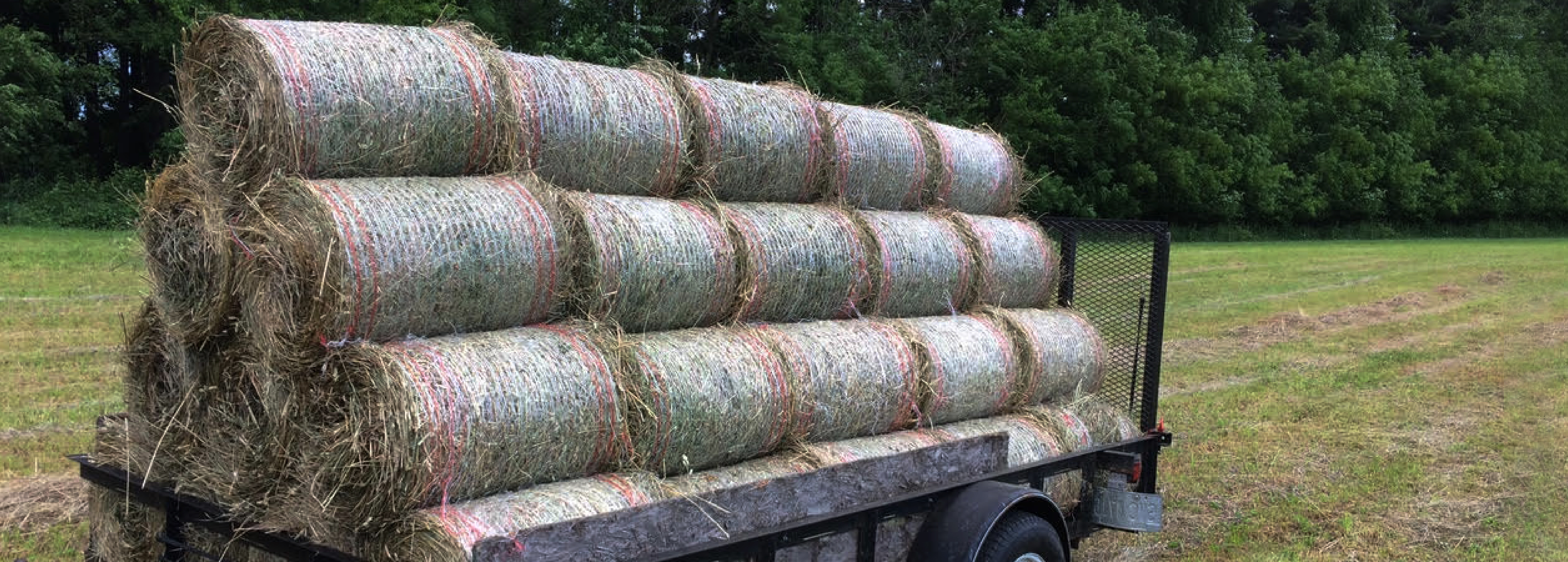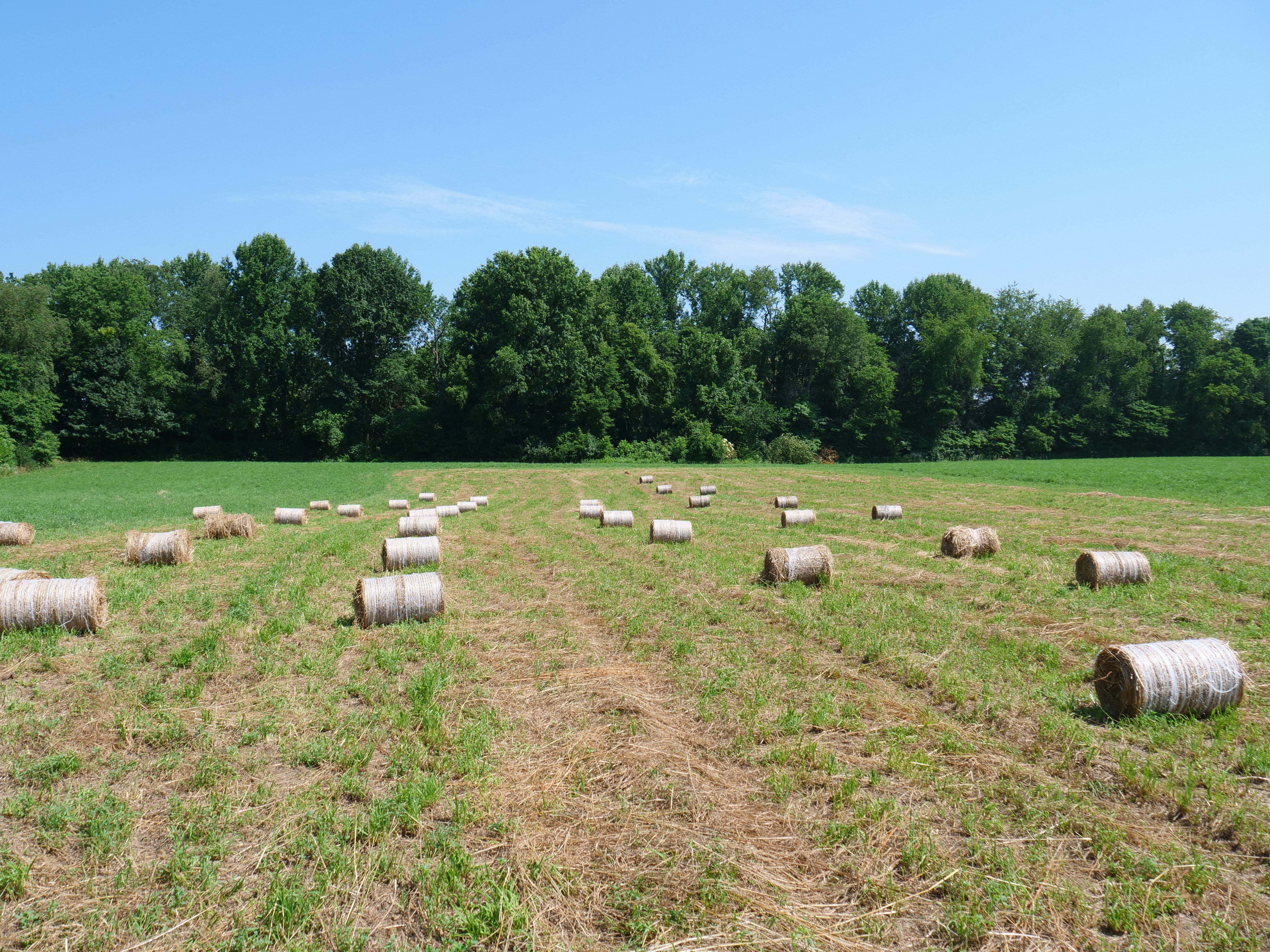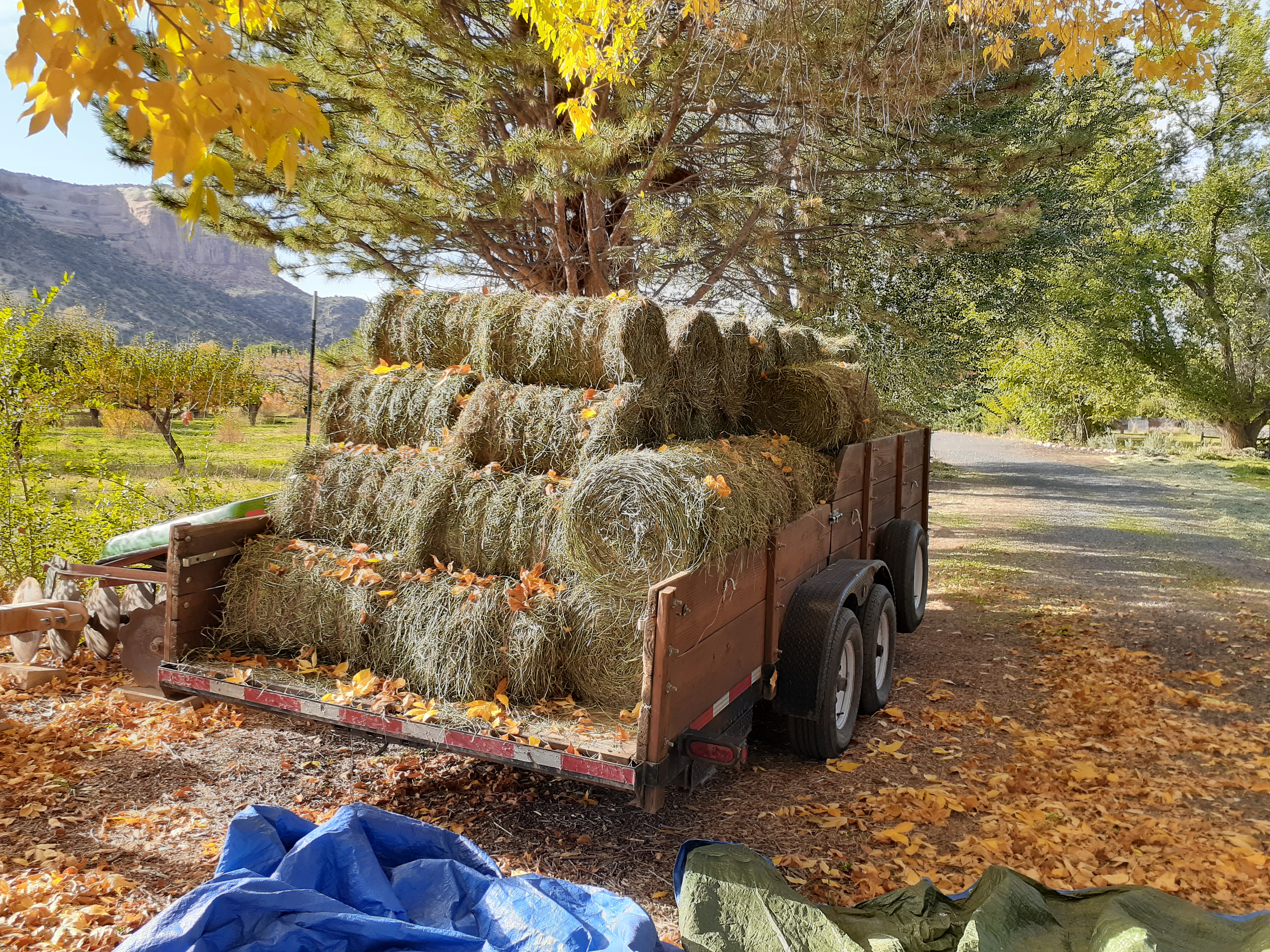Finding a Hay Market

Maybe you’ve invested in our own hay baling equipment and, having met your own farm’s hay needs, have excess hay. Or, maybe you’ve purchased your own equipment and only want to produce hay to sell it. If so, it is time to find a market for your hay.
Marketing your hay is going to be the best way to sell your hay. And the best way to market your hay is going to be to know your market. Here are some important considerations:
- What animals do your potential customers need to feed? Milking cows and goats will have different nutritional requirements than non-gestating, non-lactating animals. Working animals will have different requirements than non-working animals. This will also determine which hay cuttings your customers prefer.
- What type of bale do your potential customers want or need? As a small-farm hay producer you won’t likely be producing the large round bales that dairy, beef, and some horse operations desire. It is important to find customers for the type of bale you make. If mini round bales are new to your customers, you might try handing out a few for free so they can see how easy they are to feed out.
- What type of bale binding do your potential customers prefer? Some may prefer net wrap over twine and vice versa. Some may want natural fiber while others will prefer plastic.
 Once you have established your market, it is important to meet it. Some of the best customers are the most reliable customers--the ones that depend on you every year for their hay. However, to keep these customers, it is vital that you produce a consistent product. Maintaining a reliable forage content and fertilizing schedule will be important to this end. Once your customers see you as a dependable hay producer, you will find that often your hay is sold before it’s even baled. This is such a relief after all the hard work to harvest it.
Once you have established your market, it is important to meet it. Some of the best customers are the most reliable customers--the ones that depend on you every year for their hay. However, to keep these customers, it is vital that you produce a consistent product. Maintaining a reliable forage content and fertilizing schedule will be important to this end. Once your customers see you as a dependable hay producer, you will find that often your hay is sold before it’s even baled. This is such a relief after all the hard work to harvest it.
Setting a correct price for your hay will also be crucial to its marketability. Here are more important considerations:
- Are you in a geographic area hit recently by drought or extreme flooding? Is there a glut of hay in your market area or is it a scarce commodity? Supply and demand will greatly influence your pricing.
- What size and weight are your bales? Smaller bales typically net higher per-ton prices if there is ample market demand. For the small-farm hay producer it probably makes more sense to price hay by the bale rather than the tonnage.
- What are the storage requirements? Don’t forget to take into account the cost to store hay that will eventually be sold to customers. Roofs eventually wear out, and wet hay is useless. If you can get a customer to pick bales out of the field, by all means do so. Even if you have to lower the price a bit, you’ll save money, time, and headaches in the long run.
- What are your handling and transportation requirements? Will your customers be picking the bales up from the field or will you need to collect them and store them first? Will your customers be picking the hay up at your farm, or will you be delivering it to theirs? The less you have to handle or transport your hay, the less you pay out in fuel costs and wages for hay help.
- From what cutting and composition are your bales? Customers tend to pay premium prices for 2nd and 3rd cuttings of mixed grass/legume hay, less for first cuttings of grass hay.
 There are many methods for marketing hay. Some areas have hay exchanges--directories of hay vendors--that take up some of the burden of matching sellers to buyers. You can also set up a simple website nowadays at a minimal price. It is also possible to set up a farm page on a social media site such as Facebook to reach potential hay customers. Internet sites such as Ebay and Craigslist are also handy for reaching buyers. Even a roadside sign will do the trick since neighbors will likely help spread the word. It won’t take long for customers to find you if you consistently produce high quality hay.
There are many methods for marketing hay. Some areas have hay exchanges--directories of hay vendors--that take up some of the burden of matching sellers to buyers. You can also set up a simple website nowadays at a minimal price. It is also possible to set up a farm page on a social media site such as Facebook to reach potential hay customers. Internet sites such as Ebay and Craigslist are also handy for reaching buyers. Even a roadside sign will do the trick since neighbors will likely help spread the word. It won’t take long for customers to find you if you consistently produce high quality hay.
As you can see, there are several factors--cuttings, composition, bale type and size, etc.--to consider when selling hay. Selling is only part of the job though. Marketing your hay will be what reaches potential customers and keeps them coming back.
Sources
https://extension.psu.edu/are-you-selling-hay-instead-of-marketing-hay
https://makinhay.com/market-hay-like-a-pro-with-these-five-tips/
Recent Posts
-
The Subcompact Economy Hay Package: Your Gateway to Small-Farm Hay Production
For small-acreage farmers who want to step into hay production with confidence, affordability, a …Feb 6th 2026 -
Power Harrows for Spring Soil Prep: The Must-Have Tool for Small Farms
Spring is coming fast — and for growers, livestock managers, and land stewards, that means it’s …Feb 1st 2026 -
The Evolution of the Kubota BX Series: How a Sub-Compact Became a Powerhouse
While we here at Tractor Tools Direct do not sell Kubota BX tractors themselves, we do sell plen …Jan 15th 2026




